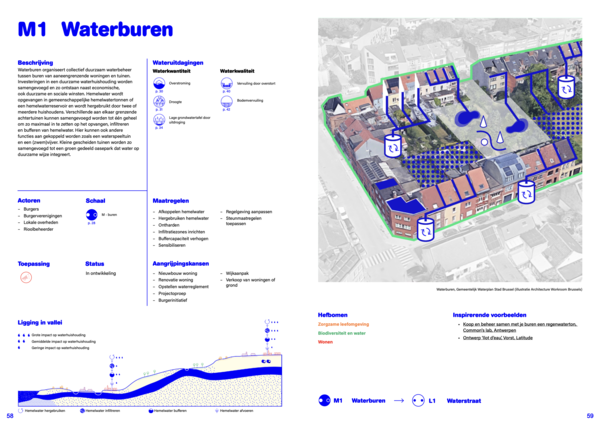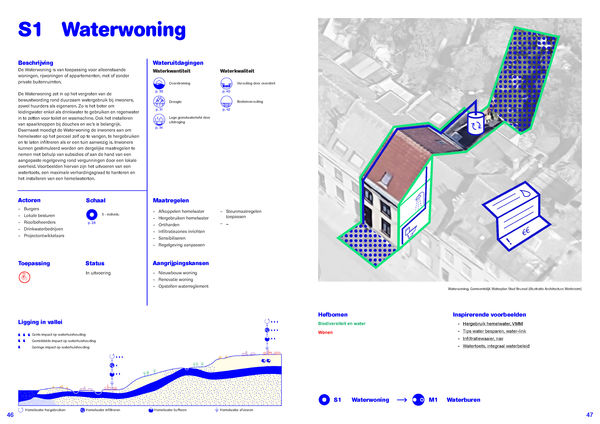The water-related challenges we face are enormous. Every year, we are confronted with drought, floods, erosion, poor water quality, salinisation, rising sea levels, etc. Although various actors deal with these water problems on a daily basis, it is like fighting a losing battle. We have to join forces to develop a landscape that acts like a 'sponge': a landscape that absorbs water during wet periods and releases it again in the event of drought. Architecture Workroom Brussels has compiled an atlas of water projects, commissioned by the Department of the Environment. It comprises a collection of different types of projects that can be applied by ordinary people in their own gardens or streets, farmers on their plots and managers of public spaces, to make our water system climate-resilient.


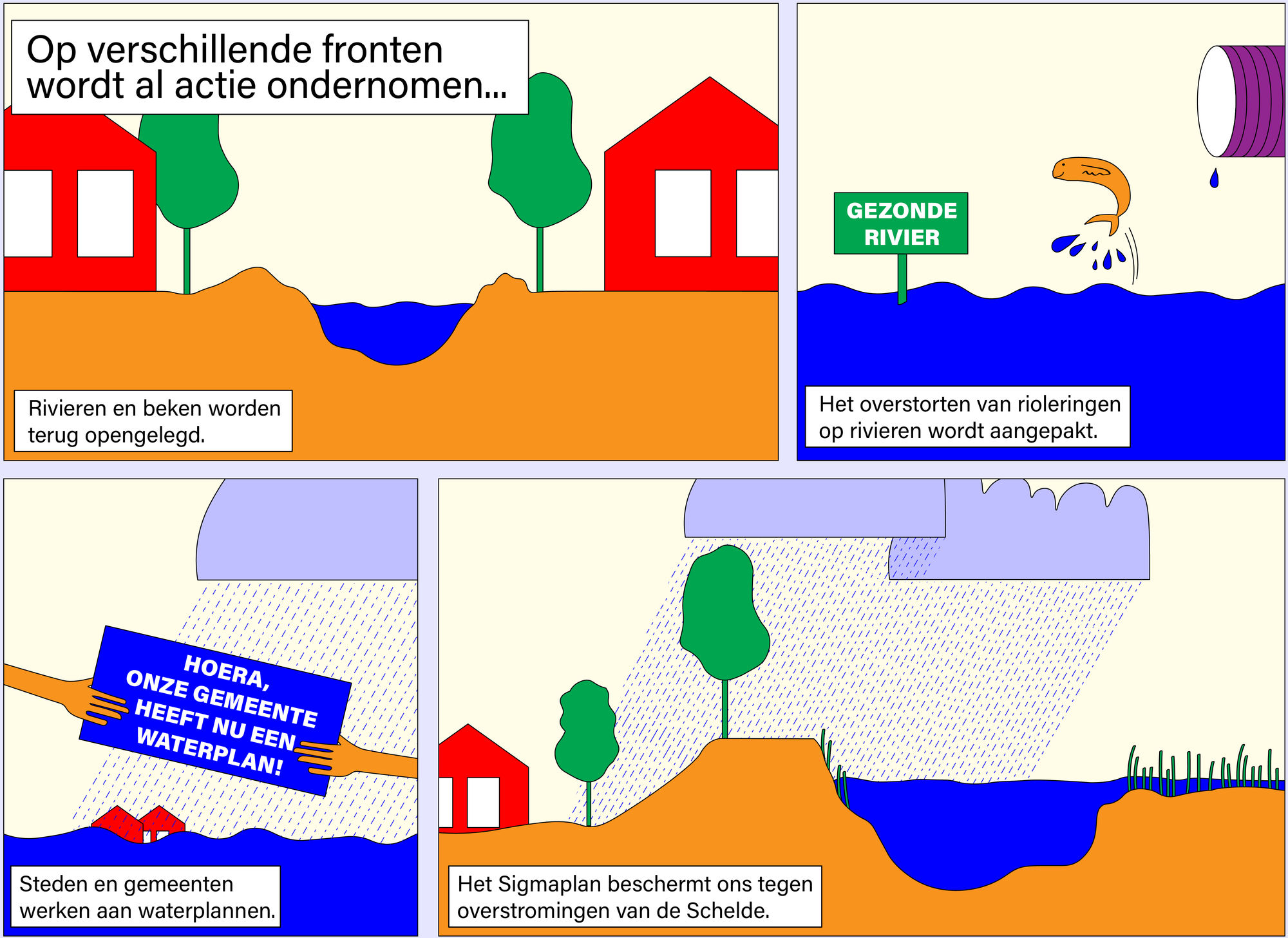
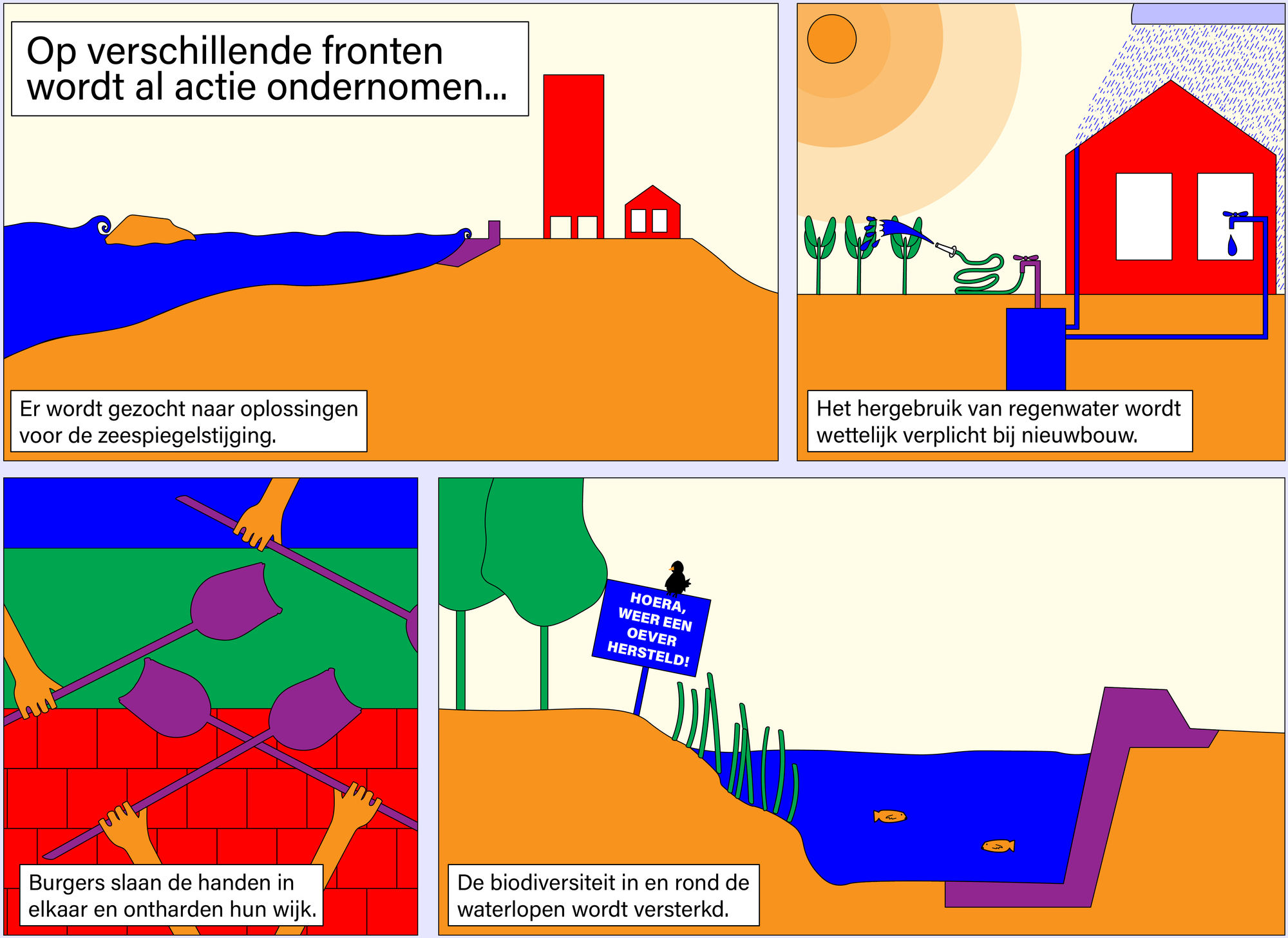
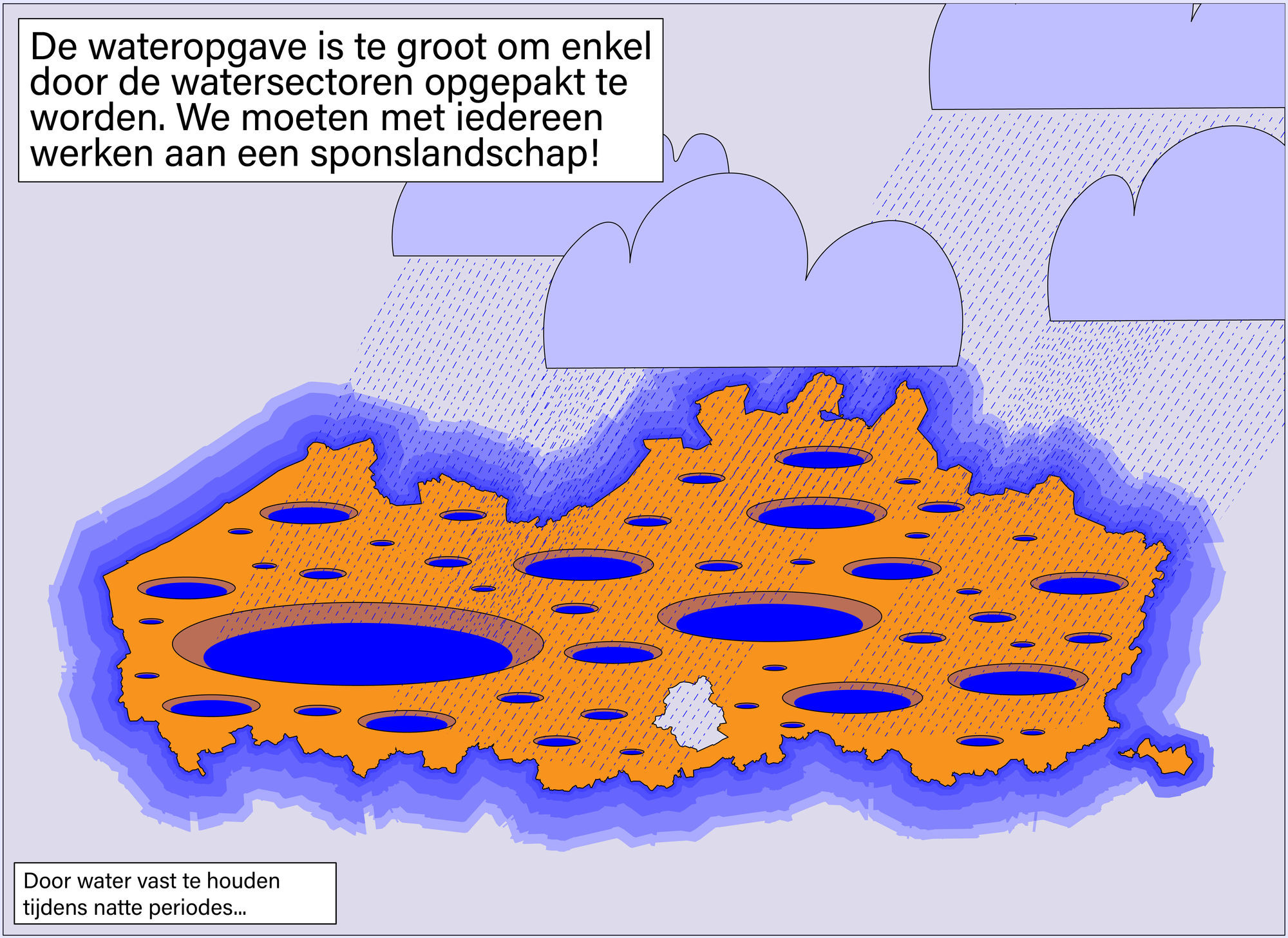

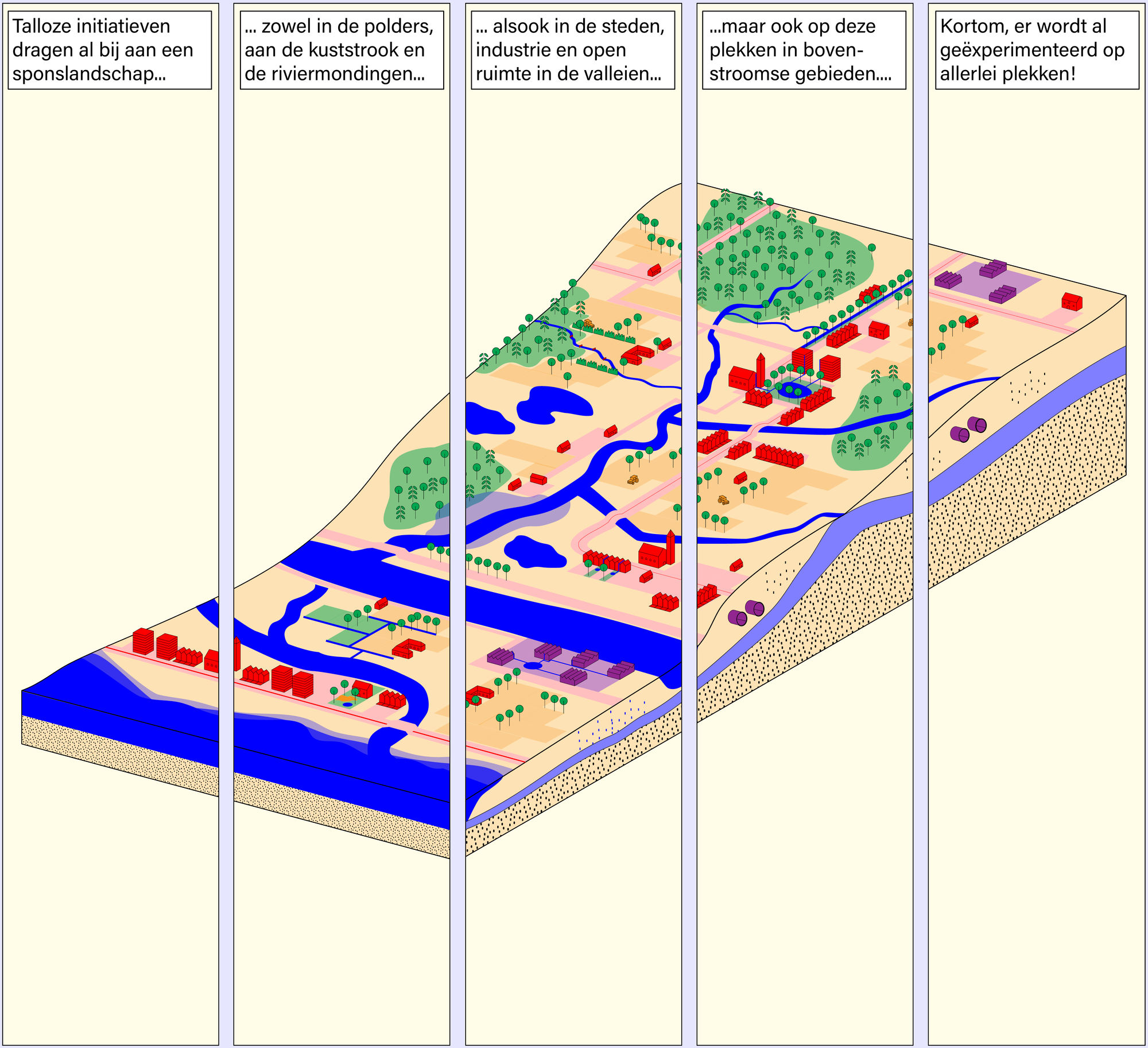
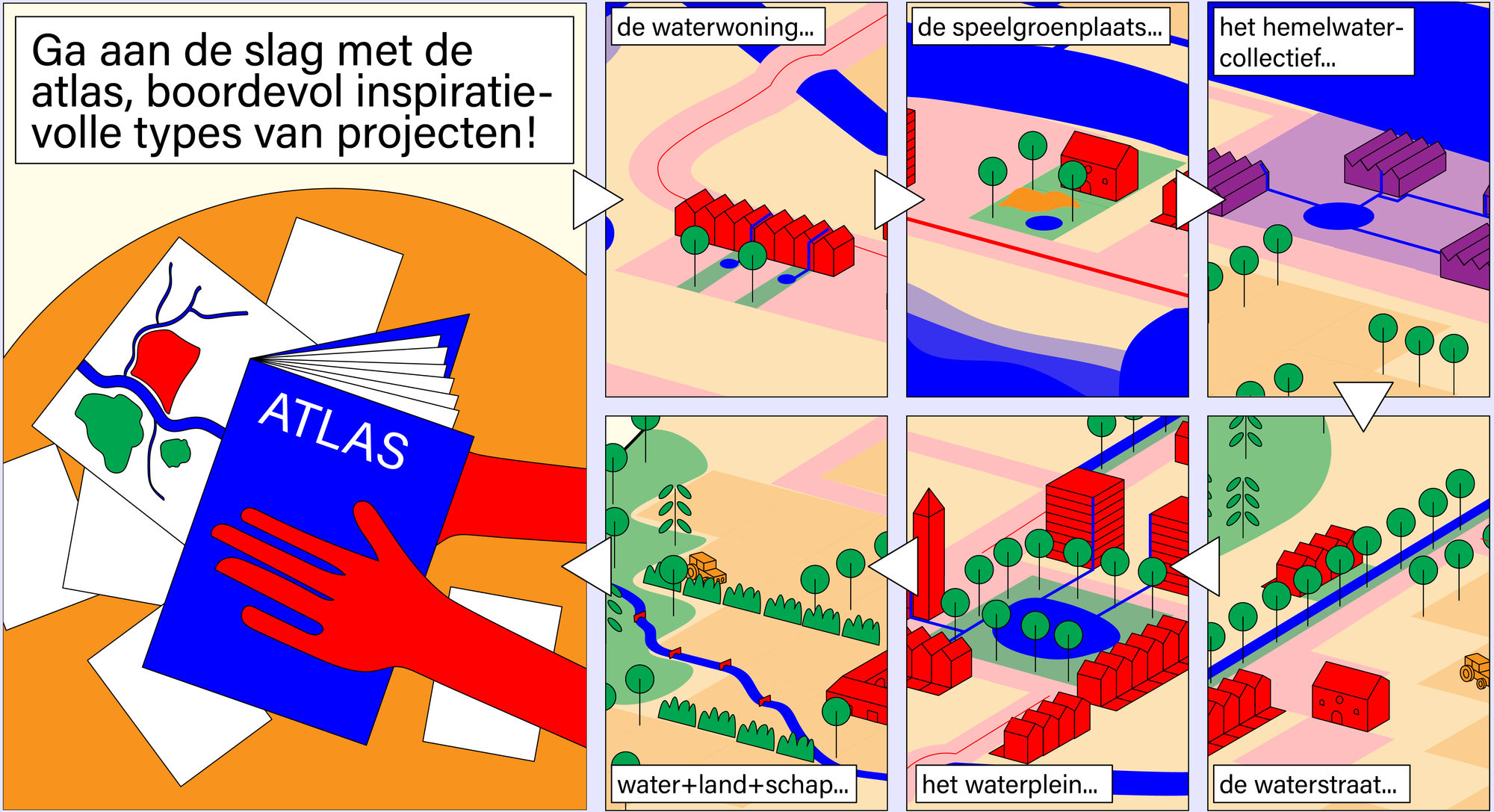
Flanders is a region with two very different faces. As part of the Rhine-Meuse-Scheldt delta, it consists of a dense and unique water system and has one of the most fertile soils in Europe. At the same time, Flanders is known as the horizontal metropolis, the nebulous city, the front-runner in surface hardening! The fertile soil is literally hidden beneath buildings, roads and squares. Moreover, our relationship with water has always been constricted: we are no longer aware of where our water comes from and how our water system works.
In the past, every effort was made to ensure water flowed to the sea as quickly as possible by covering up, straightening, draining and embanking rivers. This disturbs the water balance: one summer we suffer from drought, while the following year, flooding causes unprecedented damage. In addition, no river in Flanders meets the necessary water quality standards and erosion caused by heavy rainfall results in rivers silting up and productive agricultural plots disappearing. The salinity of water is increasing, making it unusable as drinking water, industrial processing water or for irrigation. Moreover, we are faced with irreversible problems due to climate change. These challenges are no longer abstract: sooner or later, everyone will be affected by one or more water-related challenges.
Today, actors from various sectors are starting to tackle these issues, at both the local and supralocal levels. Thanks to them, a great deal of knowledge has been accumulated with regard to the measures needed to address water-related challenges. However, these challenges are proving too big to be addressed solely by the 'water sector'. Too much, too dirty, too salty, or insufficient water are social problems that concern us all: the farmer who has to cope with drought, the citizen whose basement floods and the wildlife manager who sees ecosystems destroyed because of water pollution.
The 'Working on Water' atlas explores how all these actors can contribute to developing a 'sponge landscape’. AWB compiled the atlas based on working sessions with experts and benchmarking existing initiatives. Different types of projects illustrate how everyone can help tackle water-related challenges: from individual actions to collective interventions that have a wider impact. This enables us to collectively restore the water logic of a sponge landscape, although this also requires us to revamp how the existing water system as a whole works. We hope the atlas inspires people to set up their own water projects, by providing them with the initial tools to do so.
